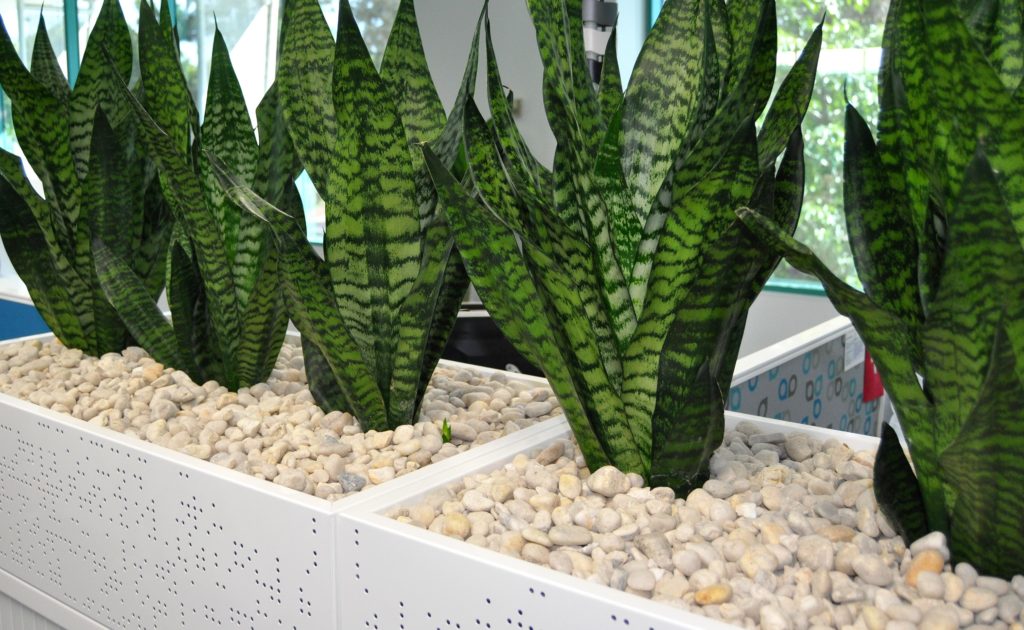
Because this is a difficult question.
The price varies according to many things, these include:
These are some of the variables to consider before a price is given.
So before you go for the cheapest price, remember, “the bitter taste of poor quality remains long after the sweetness of a good price is forgotten”.
You have a right to expect:
We invoice monthly and quote monthly rates. Be aware of prices quoted per week. Some companies quote weekly prices, this may involve 4 extra billing periods per year and does not guarantee weekly servicing. The only way to compare prices is by converting the quoted rate to an annual amount.
The longer the contract the better the price. Most businesses will give a better price for a longer contract.
Don’t be fooled by an attractive website. Determine whether the photos are of actual work by the company or simply stock photos from some suppliers catalogue.
Has the quotation a SPECIFICATION clause? What size pots, what size plants, what type of plant? An old trick is to quote one type of plant and then in a few months replace it for something cheaper and/or smaller.
When a plant deteriorates – and one will (possibly the day before the National Manager arrives), how long before replacement. Same day service is best.
What sort of mulch is best. What about the mulch, should it be Coconut fibre (Coir), pebble, Plastic Pebbles, recycled glass or what. Fibre is practical and is suitable in a lot of situations and is a sustainable resource. It is easy to remove and replace – but it is messy, however, it keeps the price down. Decorative pebbles or glass may cost as much as a small plant and they are labour intensive.
How often should the plants be watered? Fortnightly watering is a general guide but this depends on the installation, the type of plant and your environment (air-conditioning etc). Unless the plant has some form of sub-irrigation weekly servicing is required.
Living plants will drop leaves and especially figs, which take about four weeks to acclimatise, but then drop very few.
It is not possible to grow plants indoors as they would grow in a nursery.
Should the plant hirer grow their own plants?
Most indoor plant hirers use plants grown specifically for indoor plant hire from accredited nurseries. These nurseries grow plants in huge numbers under optimum conditions and thus reap economies of scale unachievable in a small nursery.
Should the indoor plant hire company have accreditation or a quality system?
The Interior Plantscape Association of Australia (IPA) accreditation scheme launched in October 2005.
IPA Accreditation is a transparent system or process for providing public confidence and accountability through a tool designed to encourage Continuing Professional Development (CPD) for the Indoor Plant Hire Industry in Australia and New Zealand. It stamps a company as a quality supplier.
Accredited Indoor Plant Hire Businesses will display the IPA Accreditation Logo. It indicates the company’s commitment to quality management through continual improvement of product and customer service. NOTE: There are two NIPA Logos, one for members and one for accredited specialists (see our home page).
This logo will also mean that the management team has met the rigorous standards imposed by the national industry body, and has committed to regular industry assessment.
IEQ Indoor Plants (Ex Action Indoor Plant Hire) accredited since as at November 2006 and has achieved bi-annual accreditation renewal for the third time.
The National Interior Plantscape Association (IPA) has a set of IPA Maintenance Standards for Indoor Plants, Containers and Growing Media.
We have customers in most areas and they would be pleased to show of their plants.
Containers are available in Ceramic, Plastic, Polymer or Metal.
The problem with ceramic pots is that they are designed for outside:
We have reciprocal agreements with companies in Sydney, Brisbane, Melbourne, Adelaide and Perth and Canberra.
So we can arrange for national accounts.
We service all suburbs from Caboolture, Ipswich and Brisbane to the Gold Coast. Acacia Ridge, Archerfield, Ascot, Bowen Hills, Bray Park, Brendale, Brisbane, Brookwater, Bulimba, Bundall, Burleigh Heads, Burpengary, Caboolture, Cannon Hill, Chermside, City Test, Collinswood, Darra, Eagle Farm, Eight Mile Plains, Fortitude Valley, Gold Coast, Greenslopes, Hemmant, Herston, Indooroopilly, Ipswich, Kallangur, Kedron, Lawnton, Lawnton, Loganholme, Manuka, Mermaid Waters, Milton, Moorooka, Morningside, Murarrie, Murrumba Downs, Nerang, Newstead, North Lakes, Northgate, Oxley, Paddington, Petrie, Pinkenba, Richlands, Salisbury, South Brisbane, Spring Hill, Stafford, Stones Corner, Taigum, Toowong, Virginia, West End, Woolloongabba, Wynnum, Yatala.
The Interior Plantscape Association (IPA) is the rebranded National Interior Plantscape Association (NIPA)
If you have any other questions please contact us.